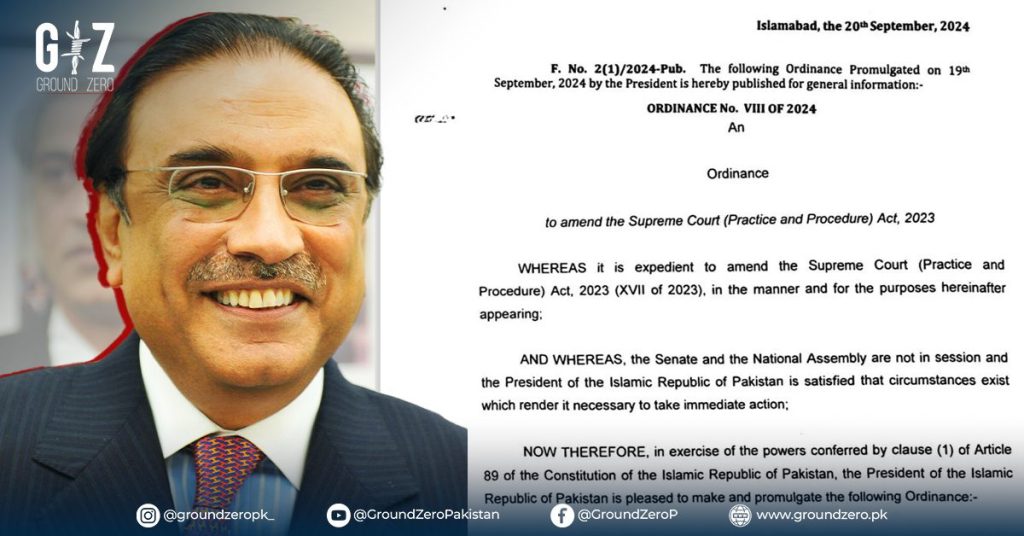Supreme Court Practice and Procedure Amendment Ordinance 2024 Signed into Law
In a significant development, President Asif Ali Zardari on Friday signed the much-debated Supreme Court (Practice and Procedure) Amendment Ordinance 2024 into law, shortly after it received approval from the federal cabinet. This ordinance aims to revise certain procedural aspects of the apex court, particularly the power dynamics within it.
Federal Cabinet’s Approval
The ordinance was approved by the federal cabinet chaired by Prime Minister Shehbaz Sharif, just hours before the President’s signature. The federal cabinet adopted the ordinance “through a circulation” after it was forwarded by the Ministry of Law late Thursday night. The ordinance is seen as a critical move toward ensuring transparency in the Supreme Court’s operations.
For more updates on Pakistan’s judicial matters, check out our Pakistan section.
Key Provisions of the Ordinance
The Supreme Court Practice and Procedure Amendment Ordinance introduces several amendments. One of the major highlights is that cases will be heard in order of their listing unless specific reasons are provided for an out-of-turn hearing. Additionally, each case and appeal will be recorded, and transcripts will be made publicly accessible.
Furthermore, the ordinance grants the Chief Justice of Pakistan (CJP) the power to appoint judges to case benches and nominate a judge to the Practice and Procedure Act Committee, ensuring seamless case hearings if a member of the committee is absent.
For insights on political reforms, read more in our Opinions section.
Powers Under the Practice and Procedure Act
Originally enacted in 2023, the Supreme Court (Practice and Procedure) Act aimed to regulate the powers of the Chief Justice and bring transparency to the apex court. The 2024 Amendment Ordinance builds on this foundation, reinforcing the role of a three-member committee—comprising the Chief Justice, the most senior judge, and a nominated judge—responsible for constituting benches and deciding on significant matters, including those under Article 184(3).
Additionally, the Act stipulates that appeals related to Article 184(3) will be heard by a larger bench, ensuring a more democratic decision-making process in the court’s original jurisdiction. The law’s retrospective application, however, has faced setbacks as courts previously struck down the provision.
For more legal updates, you can also refer to Dawn or The Express Tribune for additional context.
Reaction to the Amendment
The ordinance has stirred considerable debate, with its timing raising questions. However, proponents argue that the law brings necessary reforms to streamline judicial processes and improve transparency in Pakistan’s top court. The amendment has also provided a mechanism to ensure that sou motu actions are taken only after deliberation by a committee of senior judges.
For more on Pakistan’s legal landscape, explore The News International


